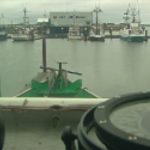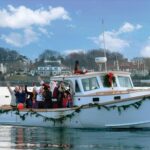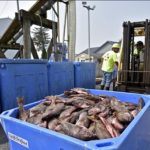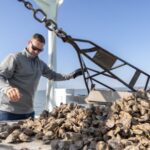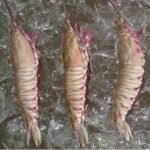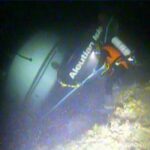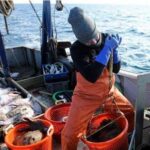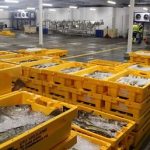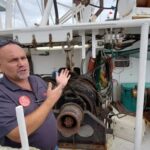Monthly Archives: December 2016
Marine Worms Are The $7.5 Billion Industry You Haven’t Heard Of
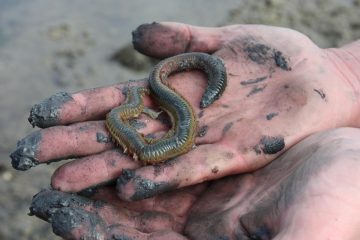 The humble marine worms used to catch fish are some of the most valuable items to come out of the sea, new research shows. For the first time, scientists have calculated the size and value of this overlooked industry. They estimate 121,000 tons of worms—worth nearly £6 billion (or about $7.5 billion in U.S. dollars)—are used for bait each year worldwide, most of these dug out of beaches and tidal flats. For comparison, that’s more than three times the annual revenue generated by the U.S. sushi industry. The estimate is especially impressive since it pertains to the use of various types of marine worms in the ocean, and doesn’t include freshwater fishing or the use of other live bait such as fish. These worms are “more expensive than any [seafood] you can think of,” says Gordon Watson, a researcher at the University of Portsmouth. Bloodworms, for example, used to catch fish like striped bass, will put you back more than $80 per pound in the United States, about four times the price of lobster. Video, Read the rest of the story here 15:27
The humble marine worms used to catch fish are some of the most valuable items to come out of the sea, new research shows. For the first time, scientists have calculated the size and value of this overlooked industry. They estimate 121,000 tons of worms—worth nearly £6 billion (or about $7.5 billion in U.S. dollars)—are used for bait each year worldwide, most of these dug out of beaches and tidal flats. For comparison, that’s more than three times the annual revenue generated by the U.S. sushi industry. The estimate is especially impressive since it pertains to the use of various types of marine worms in the ocean, and doesn’t include freshwater fishing or the use of other live bait such as fish. These worms are “more expensive than any [seafood] you can think of,” says Gordon Watson, a researcher at the University of Portsmouth. Bloodworms, for example, used to catch fish like striped bass, will put you back more than $80 per pound in the United States, about four times the price of lobster. Video, Read the rest of the story here 15:27
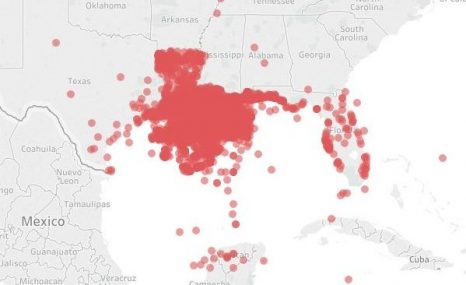
Thousands of Invisible Oil Spills Are Destroying The Gulf
Hurricane Ivan would not die. After traveling across the Atlantic Ocean, it stewed for more than a week in the Caribbean, fluctuating between a Category 3 and 5 storm while battering Jamaica, Cuba, and other vulnerable islands. And as it approached the US Gulf Coast, it stirred up a massive mud slide on the sea floor. The mudslide created leaks in 25 undersea oil wells, snarled the pipelines leading from the wells to a nearby oil platform, and brought the platform down on top of all of it. And a bunch of the mess—owned by Taylor Energy—is still down there, covered by tons of silty sediment. Also, twelve years later, the mess is still leaking. The Taylor Energy site will continue to leak for the next century,,, While the Taylor Energy spill is the worst case scenario, it’s not the US’s only low-profile leaker. Read the story here 12:57
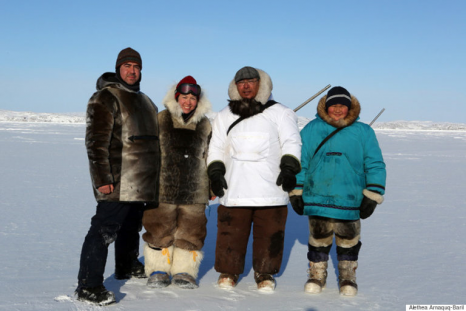
Inuit Seal Hunters Lash Out At Green Peace For Anti-Hunting Campaign
Judge separates Carlos Rafael trial from sheriff’s deputy Antonio Freitas – Carlos is up first
A federal district court judge on Monday did as some predicted and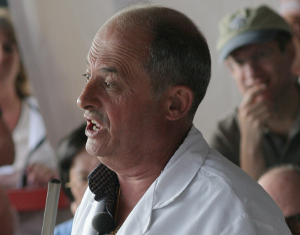 the criminal cases against New Bedford seafood mogul Carlos Rafael and sheriff’s deputy Antonio Freitas. Attorney Dan Cronin, representing Freitas, said Monday afternoon that Judge William Young in U.S. District Court in Boston also moved the start date of the trials to Feb. 6 because of scheduling conflicts. He decided Rafael would go first. Cronin had moved on behalf of Freitas that the cases be separated, but his motion was opposed on a technicality. Prosecutors agreed, however, with Rafael’s attorneys that trying both cases simultaneously would violate Rafael’s rights because of some of the things that Freitas has said in interviews that will actually be used against him and Rafael during the trial. Read the rest of the story here 08:42
the criminal cases against New Bedford seafood mogul Carlos Rafael and sheriff’s deputy Antonio Freitas. Attorney Dan Cronin, representing Freitas, said Monday afternoon that Judge William Young in U.S. District Court in Boston also moved the start date of the trials to Feb. 6 because of scheduling conflicts. He decided Rafael would go first. Cronin had moved on behalf of Freitas that the cases be separated, but his motion was opposed on a technicality. Prosecutors agreed, however, with Rafael’s attorneys that trying both cases simultaneously would violate Rafael’s rights because of some of the things that Freitas has said in interviews that will actually be used against him and Rafael during the trial. Read the rest of the story here 08:42
Charleston Fishing Families launches fund to assist families of fishermen in need
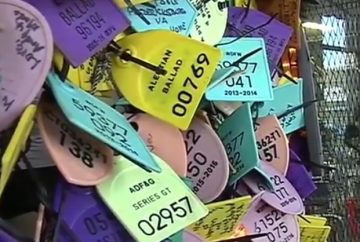 Over the weekend, Charleston Fishing Families held a ceremony to launch their Fishermen’s Relief Fund and to present their group as an official nonprofit organization. Charleston Fishing Families says, up until a year ago, there was no relief fund for fishermen and their families when a financial emergency struck. Now members of the community can donate to the fund by buying a crab pot tag and attaching it to a net at Englund Marine. The new fishing net, along with $10,000, was awarded to Charleston Fishing Families by the Bering Sea Fisherman’s Tour. It was delivered to Charleston by a man from an Alaskan fishing crew named Terry Barkley, the brother of Jerry Barkley, the captain lost on the Patty AJ last March. Video, Read the rest of the story here 08:25
Over the weekend, Charleston Fishing Families held a ceremony to launch their Fishermen’s Relief Fund and to present their group as an official nonprofit organization. Charleston Fishing Families says, up until a year ago, there was no relief fund for fishermen and their families when a financial emergency struck. Now members of the community can donate to the fund by buying a crab pot tag and attaching it to a net at Englund Marine. The new fishing net, along with $10,000, was awarded to Charleston Fishing Families by the Bering Sea Fisherman’s Tour. It was delivered to Charleston by a man from an Alaskan fishing crew named Terry Barkley, the brother of Jerry Barkley, the captain lost on the Patty AJ last March. Video, Read the rest of the story here 08:25
Small-town fisherman takes on Ottawa – Kirby Elson says controlling agreements let him operate his fishing vessel
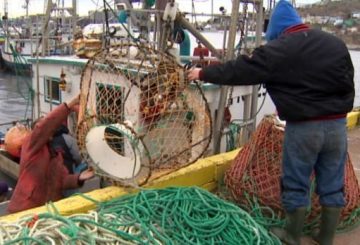 A fisherman from a small fishing town in Labrador has launched a legal challenge that could overturn decades-old federal policies in hopes of preserving independent inshore fisheries in Atlantic Canada. Kirby Elson of Cartwright, N.L., applied in June for a judicial review of a 2015 decision by the federal fisheries minister to take away his commercial fishing licences. Elson, 61, had refused to obey a DFO requirement that he exit a so-called controlling agreement with two Newfoundland and Labrador fish processors: Quinlan Brothers Ltd. and Labrador Sea Products Inc. Under the March 2003 agreement, the companies financed Elson’s snow crab licence, provided the vessel and crew, paid the insurance and covered vessel maintenance. Elson landed and sold his fish at the direction of the processors. The agreement stipulated he could not transfer the licence without company permission. Even in death, Elson’s estate was required to transfer the licence to a designate of the processors. Read the rest of the story here 07:53
A fisherman from a small fishing town in Labrador has launched a legal challenge that could overturn decades-old federal policies in hopes of preserving independent inshore fisheries in Atlantic Canada. Kirby Elson of Cartwright, N.L., applied in June for a judicial review of a 2015 decision by the federal fisheries minister to take away his commercial fishing licences. Elson, 61, had refused to obey a DFO requirement that he exit a so-called controlling agreement with two Newfoundland and Labrador fish processors: Quinlan Brothers Ltd. and Labrador Sea Products Inc. Under the March 2003 agreement, the companies financed Elson’s snow crab licence, provided the vessel and crew, paid the insurance and covered vessel maintenance. Elson landed and sold his fish at the direction of the processors. The agreement stipulated he could not transfer the licence without company permission. Even in death, Elson’s estate was required to transfer the licence to a designate of the processors. Read the rest of the story here 07:53
Proposed Atlantic wind energy lease auction to proceed
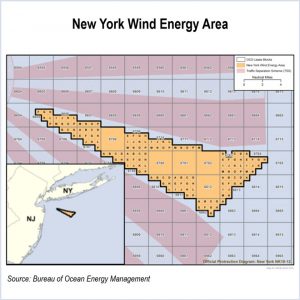 The federal government’s plan to auction the development rights to a huge offshore windfarm in the Atlantic Ocean between New York and New Jersey will proceed Thursday. Groups representing the fishing industry in four states sought to delay the auction. But an agreement between the groups and the Bureau of Ocean Energy Management will allow it to proceed. A lawyer for the fishing groups says they still will be able to seek a halt to the final sale during a federal court proceeding now scheduled for Feb. 8, 2017. Andrew Minkiewicz says the delay gives both sides more time to submit documents. A judge in Washington, D.C., agreed to the plan Monday. The groups, including scallop fishermen, claim the 127-square-mile project would harm their business. link 20:20
The federal government’s plan to auction the development rights to a huge offshore windfarm in the Atlantic Ocean between New York and New Jersey will proceed Thursday. Groups representing the fishing industry in four states sought to delay the auction. But an agreement between the groups and the Bureau of Ocean Energy Management will allow it to proceed. A lawyer for the fishing groups says they still will be able to seek a halt to the final sale during a federal court proceeding now scheduled for Feb. 8, 2017. Andrew Minkiewicz says the delay gives both sides more time to submit documents. A judge in Washington, D.C., agreed to the plan Monday. The groups, including scallop fishermen, claim the 127-square-mile project would harm their business. link 20:20
‘Deadliest Catch’ cast connection aims to assist fan Patty Valentines fundraiser raffle
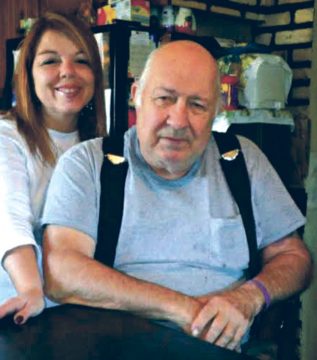 Like the beach glass she finds and turns into works of art, Portland resident Patty Valentine met the fishermen and sea captains of the Discovery Channel’s “Deadliest Catch” and turned them into friends — and, with her father Meredith “Zeke” Valentine battling cancer, she can use all the friends she can get. Of course, it helps when friends are also television stars. The story of Patty, her friendship with these sea-faring folks, and how they came to help her and her father started five years ago, when Patty reached out to Josh Harris, captain of the vessel the Cornelia Marie. “His father, Phil Harris, passed away after suffering from a pulmonary embolism, which he then had complications from,” Patty said. “(Those complications) caused a massive stroke, leading to his death.” Read the story here 14:31
Like the beach glass she finds and turns into works of art, Portland resident Patty Valentine met the fishermen and sea captains of the Discovery Channel’s “Deadliest Catch” and turned them into friends — and, with her father Meredith “Zeke” Valentine battling cancer, she can use all the friends she can get. Of course, it helps when friends are also television stars. The story of Patty, her friendship with these sea-faring folks, and how they came to help her and her father started five years ago, when Patty reached out to Josh Harris, captain of the vessel the Cornelia Marie. “His father, Phil Harris, passed away after suffering from a pulmonary embolism, which he then had complications from,” Patty said. “(Those complications) caused a massive stroke, leading to his death.” Read the story here 14:31
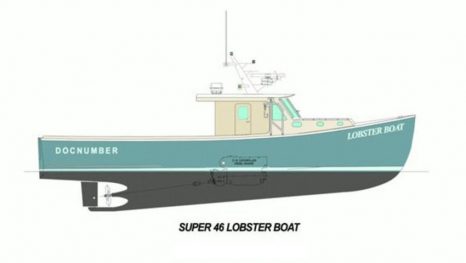
The History of the Downeasters at Wesmac Custom Boats
Downeasters, aka lobsterboats, are renowned for their seakeeping ability and classic, thrifty, Yankee good looks. Bred in Maine a century ago, they serve as cruisers, sport-fishers and workboats of all types around the world. Like any good idea, though, lobsterboats haven’t remained static. They have evolved into subsets of successful local hull forms as developments in propulsion and the needs of boaters have changed. Right now, we are on the cusp of a new evolution of Downeasters. Just what is the history of the Downeaster? What characteristics have made it so enduring? And how has it changed? To find out, we headed to Wesmac Custom Boats, a premier Downeast boatbuilder in Surry, Maine, that is creating a new “hybrid” design that takes what might be the most venerable and recognized boat type in the world to the next level. Read the rest of the story here 13:28
Border force agents check EU Fishing Quota’s instead of stopping ‘illegal migrants’
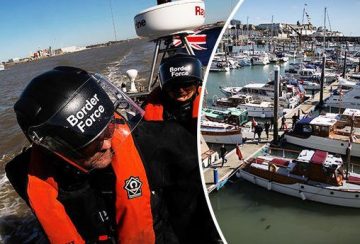 Fishermen have hit out at “absolutely shocking” Border Force agents who are using their migrant patrol boats to instead check they are sticking to EU fishing quotas. The Home Office has been told to get its priorities straight as fishermen in Ramsgate are regularly being targeted by security agencies. John Nichols, chairman of the Thanet Fishermen’s Association, said: “There’s more border agency and security boats around than in the past because of migrants coming across the Channel, but out of boredom they have a look at our fishing boats. “We’ve seen more boardings of fishing vessels recently than at any stage in the past.” Video, read the story here 13:05
Fishermen have hit out at “absolutely shocking” Border Force agents who are using their migrant patrol boats to instead check they are sticking to EU fishing quotas. The Home Office has been told to get its priorities straight as fishermen in Ramsgate are regularly being targeted by security agencies. John Nichols, chairman of the Thanet Fishermen’s Association, said: “There’s more border agency and security boats around than in the past because of migrants coming across the Channel, but out of boredom they have a look at our fishing boats. “We’ve seen more boardings of fishing vessels recently than at any stage in the past.” Video, read the story here 13:05
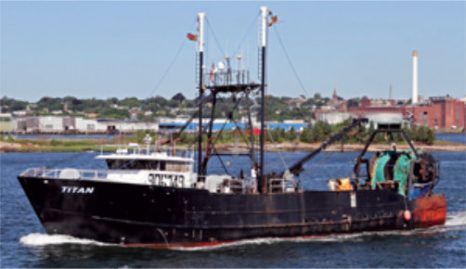
Foreign trawlers continue to pillage Grand Banks of Newfoundland
Five foreign trawlers have been issued a total of six citations in recent months for illegal fishing on the Grand Banks of Newfoundland, outside Canada’s 200-mile limit. Sept. 14: American trawler Alex Marie; cited in port at Trepassey for directed fishing for white hake on the tail of the Grand Banks. The fish was only to be taken as a by catch. July 21st: American trawler Titan, cited in Louisbourg, N.S. for inaccurate storage plans. July 7th: Spanish trawler Ana Gandon, boarded at sea on the Flemish Cap and cited for improper storage of redfish. June 15th: Portuguese trawler Calvao, boarded on the tail of the Grand Banks and cited for misreporting redfish catches. May 22nd: Spanish trawler Puente Sabaris, boarded on the Flemish Cap, and issued two citations for misreporting redfish catches. Read the rest here 11:00
Massachusetts Lobstermen’s Association President Arthur “Sooky” Sawyer added to state Fisheries Advisory Commission
 Gloucester will be doubling its representation on the state’s Marine Fisheries Advisory Commission when local lobsterman Arthur “Sooky” Sawyer joins the board this week. Sawyer, president of the Massachusetts Lobstermen’s Association, will join Gloucester’s Gus Sanfilippo on the board that advises the administration of Gov. Charlie Baker on fishing and marine issues. A longtime Gloucester groundfisherman-turned-lobsterman, Sawyer replaces Bill Adler on the commission. Adler, also a former MLA president, was not re-appointed by Baker following the expiration of his term in October. “I’m excited and looking forward to it,” Sawyer, 61, said Tuesday. “I have a lot of reading to do before my first meeting next week and I’m going to be doing a lot of listening to get up to speed on all the issues before the commission.” Sawyer’s appointment was strongly supported by local lobstermen and the MLA because of his grasp of issues related to lobstering and other Bay State fisheries. Read the rest of the story here 10:26
Gloucester will be doubling its representation on the state’s Marine Fisheries Advisory Commission when local lobsterman Arthur “Sooky” Sawyer joins the board this week. Sawyer, president of the Massachusetts Lobstermen’s Association, will join Gloucester’s Gus Sanfilippo on the board that advises the administration of Gov. Charlie Baker on fishing and marine issues. A longtime Gloucester groundfisherman-turned-lobsterman, Sawyer replaces Bill Adler on the commission. Adler, also a former MLA president, was not re-appointed by Baker following the expiration of his term in October. “I’m excited and looking forward to it,” Sawyer, 61, said Tuesday. “I have a lot of reading to do before my first meeting next week and I’m going to be doing a lot of listening to get up to speed on all the issues before the commission.” Sawyer’s appointment was strongly supported by local lobstermen and the MLA because of his grasp of issues related to lobstering and other Bay State fisheries. Read the rest of the story here 10:26
Atlantic Halibut under Council scrutiny as Maine’s catch increases
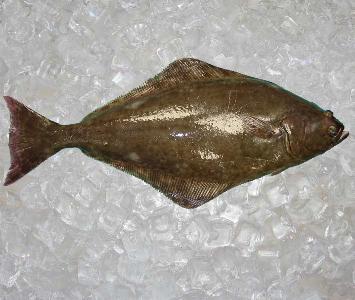 Federal fishing regulators say they are looking to change the way they manage Atlantic halibut in the wake of a surge in catch of the fish. The government lists Atlantic halibut as “overfished” and conservationists want to protect it. But many fishermen say the catch is up because the stock has been rebuilt over recent years. East Coast fishermen caught more than 215,000 pounds of Atlantic halibut in 2015 in the most productive year of fishing for the flatfish since 1972. Catch of the fish in nearshore Maine waters is helping drive the increase, regulators say. The regulatory New England Fishery Management Council decided last month to review management of halibut, which is popular with diners and chefs for its thick, meaty steaks. Exactly what form regulation changes could take isn’t yet known. We’ve identified that this is an issue, and this will be a priority for 2017,” Janice Plante, a spokeswoman for the council, said. Read the story here 08:35
Federal fishing regulators say they are looking to change the way they manage Atlantic halibut in the wake of a surge in catch of the fish. The government lists Atlantic halibut as “overfished” and conservationists want to protect it. But many fishermen say the catch is up because the stock has been rebuilt over recent years. East Coast fishermen caught more than 215,000 pounds of Atlantic halibut in 2015 in the most productive year of fishing for the flatfish since 1972. Catch of the fish in nearshore Maine waters is helping drive the increase, regulators say. The regulatory New England Fishery Management Council decided last month to review management of halibut, which is popular with diners and chefs for its thick, meaty steaks. Exactly what form regulation changes could take isn’t yet known. We’ve identified that this is an issue, and this will be a priority for 2017,” Janice Plante, a spokeswoman for the council, said. Read the story here 08:35
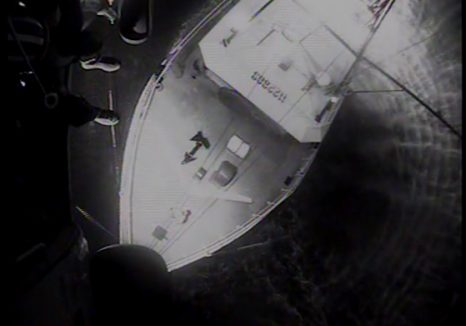
Video-Coast Guard medevacs ill fisherman from 115 miles off Provincetown
A Coast Guard aircrew from Air Station Cape Cod medevaced a 24-year-old-man Sunday afternoon from the fishing vessel Athena, which was located approximately 115 miles east of Provincetown. The Coast Guard was notified of the sick fisherman at around 1:45 p.m. via satellite phone by the captain of the 88-foot Athena, which is homeported out of New Bedford. An MH-60T Jayhawk helicopter crew launched at 2:45 p.m. and arrived on scene at 4:15 p.m. Once on scene the crew coordinated to lift the patient onto the helicopter. At the time of the rescue the winds were out of the northwest at 10-15 knots and the waves were reaching 5 feet in height. After being hoisted, the patient was flown to Hyannis Airport where an ambulance was waiting to transport him to Cape Cod Hospital. The patient was reported to have been stable at the time of the transfer. Click here for video 07:40

PANBO Blog: McMurdo SmartFind G8 AIS EPIRB, first of many, PLBs too?
Let’s first note that McMurdo’s trailblazing SmartFind G8 AIS EPIRB still awaits FCC approval and probably won’t be for sale in the U.S. until spring (along with its more conventional E8 and G8 siblings). But McMurdo has definitely developed this useful combination of local and global rescue beacon, other manufacturers may have AIS EPIRBs in the works, and I’ve got some details about how they’ll work. I also have some safety tips from an acquaintance who just dramatically experienced the effectiveness of a current ACR EPIR,,, The AIS component of coming AIS EPIRBs like the McMurdo SmartFind G8 is similar to what has already been developed for AIS SARTs and personal MOB beacons. Story by Ben Ellison on Read the rest here 15:21
Mid-Atlantic Fishery Management Council meeting in Baltimore, Maryland: December 12-15, 2016
 The public is invited to attend the Mid-Atlantic Fishery Management Council’s December 2016 meeting to be held December 12-15, 2016 in Baltimore, Maryland. The meeting will be held at the Royal Sonesta Harbor Court, 550 Light St., Baltimore, MD 21202, Telephone 410-234-0550. Webinar: For online access to the meeting, enter as a guest click here . Meeting Materials: Briefing documents click here as they become available. Agenda click here 13:04
The public is invited to attend the Mid-Atlantic Fishery Management Council’s December 2016 meeting to be held December 12-15, 2016 in Baltimore, Maryland. The meeting will be held at the Royal Sonesta Harbor Court, 550 Light St., Baltimore, MD 21202, Telephone 410-234-0550. Webinar: For online access to the meeting, enter as a guest click here . Meeting Materials: Briefing documents click here as they become available. Agenda click here 13:04
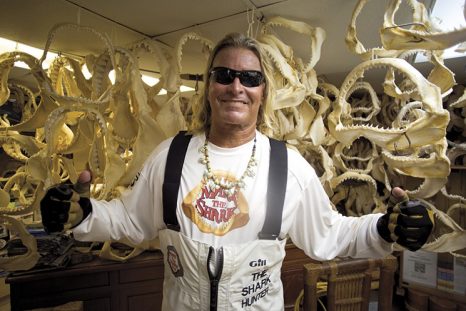
Charter fisherman catches kilo of cocaine off Miami coast
Miami fisherman Mark Quartiano takes pride in his ability to catch sharks, but on Wednesday he reeled in something else entirely: cocaine. He thinks the package had been in the water for a few weeks, as it had barnacles on it. Further inspection revealed (click for video) it to be a kilo of cocaine. “Lo and behold, it was one of those square grouper”, Quartiano joked to WPLG-TV. (click for uncensored reaction video) Quartiano is described by Miami New Times as a “love-him-or-hate-him shark fisherman” who “delights in rankling conservationists”. Read the rest here 11:26
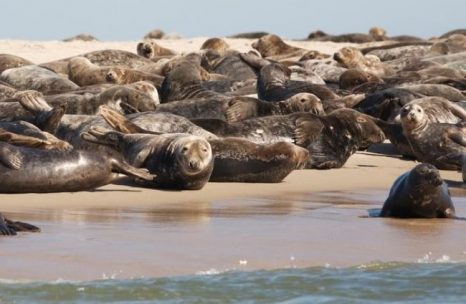
Cape Cod: Summing up the seals
When David Pierce seated himself at the table at the Nantucket Seal Symposium last month, one image came to mind: private pilot Aaron Knight’s video from last April showing miles of gray seals – a dozen deep, cheek by jowl, banding the Monomoy shoreline. Recently appointed as director of the state Division of Marine Fisheries, Pierce is a veteran of decades of fisheries negotiations as former director Paul Diodati’s proxy on the New England Fishery Management Council. Fishery managers live and die by population estimates, known as stock assessments, that help set sustainable catch levels for commercial fishermen, so it was disconcerting to hear that the same level of science had not been applied to the predators who eat them. “The determination of population size is extremely important, especially in the context of ecosystem management in New England,” Pierce said. “If they (gray seals) are out there in large numbers foraging, what might their impact be on the Georges Bank ecosystem?” The answer will not be coming any time soon, according to federal fisheries officials at the symposium. Read the story here 09:43
Sportsmen, commercials feud over Columbia River reforms
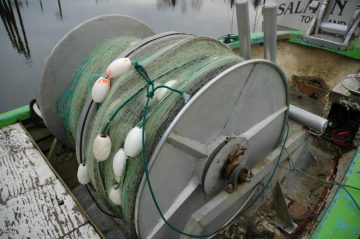 Sport fishermen from Southwest Washington repeatedly exhorted the state Fish and Wildlife Commission on Saturday to implement fully in 2017 the most sweeping reforms in Columbia River salmon management in decades. And their commercial foes, also from Southwest Washington, were equally strident that the plan adopted four years ago to eliminate gillnetting from the main river and to prioritize angling has been fraught with problems in the 2013-16 transition period. The nine-member citizen panel will meet Jan. 13 and 14 in Vancouver to make its decision. The Oregon Fish and Wildlife Commission is going through similar deliberations, then the two states will need to reconcile any differences in their policies. Reforms adopted by both states in early 2013 allocated more chinook salmon to sportsmen in the main Columbia and restricted gillnetting to off-channel sites like Youngs Bay near Astoria. The reforms also called for commercial fishing that remained in the main Columbia to be done with live-capture methods — such as purse seines and beach seines — designed to harvest hatchery stocks and release wild fish. Read the rest here 08:20
Sport fishermen from Southwest Washington repeatedly exhorted the state Fish and Wildlife Commission on Saturday to implement fully in 2017 the most sweeping reforms in Columbia River salmon management in decades. And their commercial foes, also from Southwest Washington, were equally strident that the plan adopted four years ago to eliminate gillnetting from the main river and to prioritize angling has been fraught with problems in the 2013-16 transition period. The nine-member citizen panel will meet Jan. 13 and 14 in Vancouver to make its decision. The Oregon Fish and Wildlife Commission is going through similar deliberations, then the two states will need to reconcile any differences in their policies. Reforms adopted by both states in early 2013 allocated more chinook salmon to sportsmen in the main Columbia and restricted gillnetting to off-channel sites like Youngs Bay near Astoria. The reforms also called for commercial fishing that remained in the main Columbia to be done with live-capture methods — such as purse seines and beach seines — designed to harvest hatchery stocks and release wild fish. Read the rest here 08:20
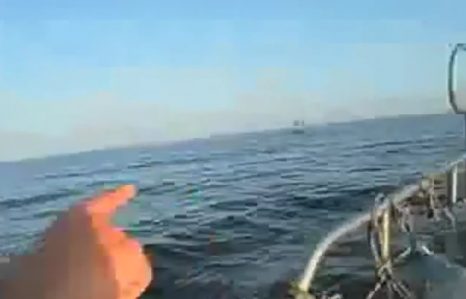
Fishermen films millitary jets chasing UFO over Mediterranean Sea
A group of Galician fishermen were taking care of business when they heard some loud noises coming from the horizon. Apparently the footage was captured in late 2009, offering a relatively low quality image but, the streak of events that followed offer a shocking view of a UFO submerging into the Sea with military jets hot on its tail. Turning the camera on with panic and confusion, the fishermen manage to surprise what seems to be two fighting jets coming in from the right side. Over a short period of time, a UFO appears to the right, quickly submerging into the water, followed by the two jets that previously passed by the fishermen’s boat. Panic can be read on the Galician fisherman’s face, unaware of what is happening. While still in shock, the guy holding the camera surprises a military helicopter approaching the boat, with its personnel yelling at the crew to remain in position. You can’t make this stuff up! Watch the video here 15:44
World Wildlife Fund warns planet could be out of fish by 2048
If you’re eating fish just for the halibut, maybe it’s time to rethink your see-food habits. According to the latest World Wildlife Fund , our oceans are running out of fish. “Unless the current situation improves,” WWF says, citing statistics from a 10-year-old research article, “stocks of all species currently fished for food are predicted to collapse by 2048.” The global fishing fleet, it says, is “2-3 times larger than what the oceans can sustainably support” — meaning the industry is taking more fish out of the sea than the ones it leaves behind can replace. According to international NGO, 53 percent of the world’s fisheries — the places where fish are caught — are “fully exploited,” and another 32 percent are “overexploited, depleted or recovering from depletion…. Read the rest here! 15:05
, our oceans are running out of fish. “Unless the current situation improves,” WWF says, citing statistics from a 10-year-old research article, “stocks of all species currently fished for food are predicted to collapse by 2048.” The global fishing fleet, it says, is “2-3 times larger than what the oceans can sustainably support” — meaning the industry is taking more fish out of the sea than the ones it leaves behind can replace. According to international NGO, 53 percent of the world’s fisheries — the places where fish are caught — are “fully exploited,” and another 32 percent are “overexploited, depleted or recovering from depletion…. Read the rest here! 15:05
East Coast fishermen file appeal over cost of government-required ‘at-sea monitors’
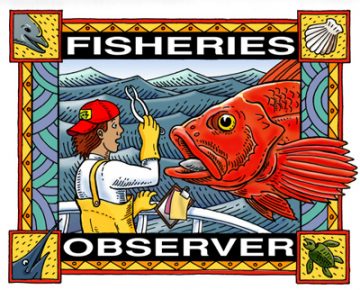 The National Oceanic and Atmospheric Administration, NOAA, requires groundfishermen — those who catch cod, haddock and other common bottom-dwelling species — to carry on board “at-sea monitors.” The observers, hired by three for-profit companies, are third-party workers whose task it is to observe fishermen’s compliance with federal regulations and ensure annual quotas are not exceeded. The dispute lies in the cost of the monitors and who should pay for them: Fishermen are billed on average $700 a day when a regulator is present. NOAA, meanwhile, says monitors were placed on fishing boats like Goethel’s only 14 percent of the time in 2016 — and claims the fishing industry supported this system of regulation in 2010 when a vote went before the New England Fishery Management Council, an advisory board to NOAA that sets the rules. “At sea monitors were originally supported by the sectors when we went from a days-at-sea form of management to a quota based form of management in 2010,” said John Bullard, the regional administrator for NOAA’s Greater Atlantic Regional Fisheries Office. Read the story here 14:22
The National Oceanic and Atmospheric Administration, NOAA, requires groundfishermen — those who catch cod, haddock and other common bottom-dwelling species — to carry on board “at-sea monitors.” The observers, hired by three for-profit companies, are third-party workers whose task it is to observe fishermen’s compliance with federal regulations and ensure annual quotas are not exceeded. The dispute lies in the cost of the monitors and who should pay for them: Fishermen are billed on average $700 a day when a regulator is present. NOAA, meanwhile, says monitors were placed on fishing boats like Goethel’s only 14 percent of the time in 2016 — and claims the fishing industry supported this system of regulation in 2010 when a vote went before the New England Fishery Management Council, an advisory board to NOAA that sets the rules. “At sea monitors were originally supported by the sectors when we went from a days-at-sea form of management to a quota based form of management in 2010,” said John Bullard, the regional administrator for NOAA’s Greater Atlantic Regional Fisheries Office. Read the story here 14:22
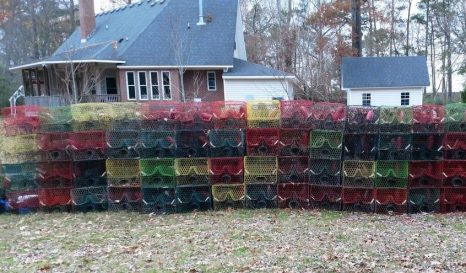
Currituck County debates ordinance change that could save the local crabbing industry
Crab fishermen are seeking a change in the law so they can operate legally in Currituck County even while neighbors complain of clutter, noises and smells. The change would solve an old problem for the county, where crab fishing is a mainstay and crab pots with plastic floats dot the rural waters. Common as it is, county ordinances have never accounted for the way most crab fishermen operate out of their homes, sometimes in small subdivisions with neighbors close by. Mostly it happens under the radar, with county inspectors opting not to cite watermen unless there are complaints. But in April, inspectors visited Wayne Burch’s growing crabbing business near Tulls Bay, south of Moyock. Someone had complained, and the inspectors cited Burch for violating 11 standards of the home business ordinance including outdoor storage, retail sales from the premises and creating traffic, noise and odor. In response, Burch’s friend, business partner and next door neighbor, Lauren Berry, began working with county staff on an ordinance amendment to make it legal for backyard crabbers to operate the way they always have. “Our current zoning laws do not allow for our heritage,” Berry said. “This is an industry we should protect.” Read the story here 13:47
Nearby vessel rescues 6-member crew after boat fire off Burin Peninsula
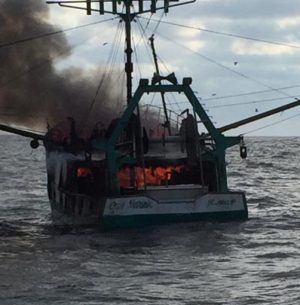 One of the six people onboard a fishing vessel that caught fire Thursday morning off the Burin Peninsula says they’re “all very lucky” and credits a nearby boat for coming to their rescue. Michael Clements said he had been fishing onboard the Cape Mariner and getting ready to haul the boat’s gear back in. “There was an explosion down in the engine room and flames came out and the wheelhouse filled up with smoke and we had to get off the boat,” he told CBC News. Clements said the Southern Mariner was also out fishing about five miles away and responded to the blaze. “We thank them as much as we can, to get there and get us so quickly, ” said Clements. He said there were no injuries, which he credits to the quick rescue, but the Cape Mariner is damaged. Video, more images, read the rest here 10:07
One of the six people onboard a fishing vessel that caught fire Thursday morning off the Burin Peninsula says they’re “all very lucky” and credits a nearby boat for coming to their rescue. Michael Clements said he had been fishing onboard the Cape Mariner and getting ready to haul the boat’s gear back in. “There was an explosion down in the engine room and flames came out and the wheelhouse filled up with smoke and we had to get off the boat,” he told CBC News. Clements said the Southern Mariner was also out fishing about five miles away and responded to the blaze. “We thank them as much as we can, to get there and get us so quickly, ” said Clements. He said there were no injuries, which he credits to the quick rescue, but the Cape Mariner is damaged. Video, more images, read the rest here 10:07
Partial transcript of Carlos Rafael’s meeting with undercover IRS agents
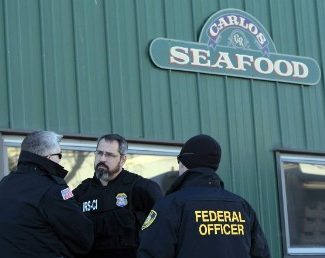 Documents filed in U.S. District Court in Boston Thursday show seafood mogul Carlos Rafael implicating his whole family in his alleged scheme to smuggle cash to the Azores and turn large catches of protected fish into large amounts of cash by selling them under the table. Rafael is also quoted as boasting that he pressured Bristol County Sheriff Thomas M. Hodgson, into giving Deputy Sheriff Antonio Freitas a raise and promotion, and in turn using Freitas to get large amounts of cash around immigration and customs at Logan Airport. The document is an official response to requests by Rafael and Freitas to be tried separately to preserve their individual rights. Read Carlos Rafael’s motion to sever his trial from the trial of Antonio Freitas. Read the government’s response, which contains Carlos Rafael’s alleged statements to undercover agents about the Antonio Freitas and the Bristol County Sheriff’s Department. The items are contained in a partial transcript of a meeting Rafael had with two men he thought were Russian businessmen but who were actually IRS agents operating under cover to learn how Rafael did business. Read the story here 08:55
Documents filed in U.S. District Court in Boston Thursday show seafood mogul Carlos Rafael implicating his whole family in his alleged scheme to smuggle cash to the Azores and turn large catches of protected fish into large amounts of cash by selling them under the table. Rafael is also quoted as boasting that he pressured Bristol County Sheriff Thomas M. Hodgson, into giving Deputy Sheriff Antonio Freitas a raise and promotion, and in turn using Freitas to get large amounts of cash around immigration and customs at Logan Airport. The document is an official response to requests by Rafael and Freitas to be tried separately to preserve their individual rights. Read Carlos Rafael’s motion to sever his trial from the trial of Antonio Freitas. Read the government’s response, which contains Carlos Rafael’s alleged statements to undercover agents about the Antonio Freitas and the Bristol County Sheriff’s Department. The items are contained in a partial transcript of a meeting Rafael had with two men he thought were Russian businessmen but who were actually IRS agents operating under cover to learn how Rafael did business. Read the story here 08:55
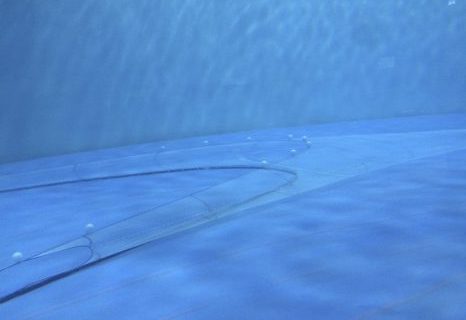
New net opens a way to help fishermen and protect cod
Catching the wrong fish, or catching too much of a low-quota fish like cod, can end a season for a commercial fisherman. In recent years, the interstate New England Fishery Management Council has slashed the number of cod that can be landed from the Gulf of Maine from about 1,550 metric tons in 2014 to 280 metric tons now. Fishermen who catch too many, even by accident, can be shut down for the season. A team of scientists and fishermen led by the Gulf of Maine Research Institute has created a new kind of fishing net that can catch popular flatfish like yellowtail flounder without busting strict quotas set to protect the Atlantic cod from overfishing. The net redesign team was led by Eayrs, himself a former commercial fisherman in Australia, and Massachusetts state fisheries biologist Michael Pol. The team included four commercial fishermen from Massachusetts and New Hampshire, two other scientists and a Rhode Island netmaker. The National Oceanic and Atmospheric Administration’s Saltonstall-Kennedy program funded the $265,000 project in 2015, when it awarded $22 million in fisheries grants. Read the story here 07:57






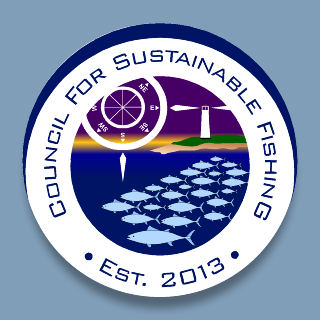
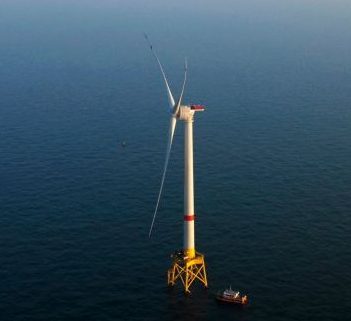 The lease rights to develop a wind-energy farm on 79,350 acres of ocean 11.5 miles from Jones Beach could be granted by federal regulators this week. But the online bidding is only the start of a process that could take seven years or more, officials said. The federal Bureau of Ocean Energy Management, a division of the Department of the Interior created by President Obama in 2010 to facilitate energy independence and accelerate wind-energy efforts, has said it will start the Thursday auction with an opening bid of $158,700, or around $2 per acre. The long-awaited path to that auction had seemed clear until fishing groups, including the largest commercial fishing association on Long Island, filed suit on Thursday seeking to block it, alleging the project of 194 turbines would hinder access to vital fishing grounds. A hearing on a request for a temporary restraining order and injunction has been scheduled for Dec. 14, a day before the auction, before U.S. District Court Judge Tanya S. Chutkan. But attorneys for both sides appear to have worked out an agreement that would let the auction go forward but give fishing groups 14 days’ notice before any final lease is executed. It awaits a judge’s approval.
The lease rights to develop a wind-energy farm on 79,350 acres of ocean 11.5 miles from Jones Beach could be granted by federal regulators this week. But the online bidding is only the start of a process that could take seven years or more, officials said. The federal Bureau of Ocean Energy Management, a division of the Department of the Interior created by President Obama in 2010 to facilitate energy independence and accelerate wind-energy efforts, has said it will start the Thursday auction with an opening bid of $158,700, or around $2 per acre. The long-awaited path to that auction had seemed clear until fishing groups, including the largest commercial fishing association on Long Island, filed suit on Thursday seeking to block it, alleging the project of 194 turbines would hinder access to vital fishing grounds. A hearing on a request for a temporary restraining order and injunction has been scheduled for Dec. 14, a day before the auction, before U.S. District Court Judge Tanya S. Chutkan. But attorneys for both sides appear to have worked out an agreement that would let the auction go forward but give fishing groups 14 days’ notice before any final lease is executed. It awaits a judge’s approval. 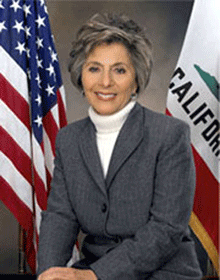 In a defiant final act of her long career, U.S. Sen. Barbara Boxer mounted a filibuster on the Senate floor Friday morning attempting to block passage of water bill amendments she says would harm salmon and the Sacramento-San Joaquin River Delta to deliver more water to farmers. Boxer, the California Democrat, and Sen. Maria Cantwell, D-Washington, spent about 90 minutes denouncing the bill. “I ask a no vote on a bill that would undo the entire salmon fishery on the West Coast. Don’t drop this in at the last minute,” Boxer said about amendments that were added at the last minute to an $11 billion water infrastructure bill with projects across the nation. Several environmental and fishermen’s groups back Boxer’s fight against the 11th-hour amendments, which open the door to deliver more Delta water to San Joaquin Valley farmers and Southern California at the expense of Delta fish and water quality.
In a defiant final act of her long career, U.S. Sen. Barbara Boxer mounted a filibuster on the Senate floor Friday morning attempting to block passage of water bill amendments she says would harm salmon and the Sacramento-San Joaquin River Delta to deliver more water to farmers. Boxer, the California Democrat, and Sen. Maria Cantwell, D-Washington, spent about 90 minutes denouncing the bill. “I ask a no vote on a bill that would undo the entire salmon fishery on the West Coast. Don’t drop this in at the last minute,” Boxer said about amendments that were added at the last minute to an $11 billion water infrastructure bill with projects across the nation. Several environmental and fishermen’s groups back Boxer’s fight against the 11th-hour amendments, which open the door to deliver more Delta water to San Joaquin Valley farmers and Southern California at the expense of Delta fish and water quality. 

























